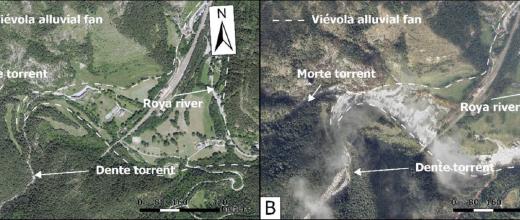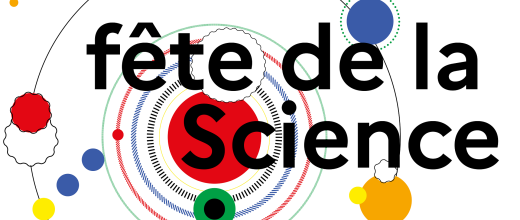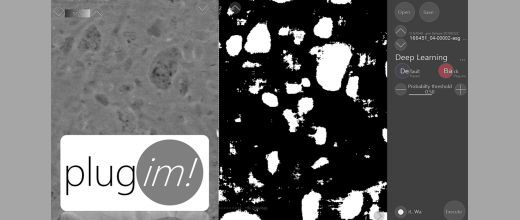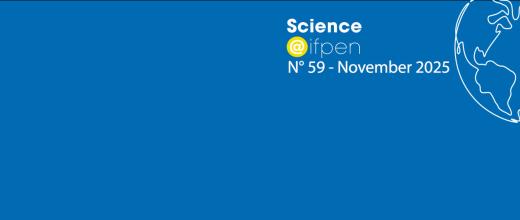
News in brief
Link between chemical diversity and enzyme reactivity: multi-technique exploration for bio-based fuels.
Lignocellulosic biomass is a renewable resource for which conversion into bioethanol is a promising avenue for producing alternative, low-carbon fuels. Converting this biomass requires a pretreatment step to break it down. However, this process generates compounds that can inhibit the action of enzymes used to hydrolyze cellulose into glucose, thereby reducing the efficiency of this reaction. In order to improve the profitability of such processes, these inhibitors need to be identified, but their presence in a highly complex environment composed of several hundred products is a real challenge.

News in brief
Multi-agent reinforcement learning for dynamic wind farm control
When wind turbines are assembled on a wind farm, under certain wind conditions they may interact with each other through what is known as the wake effect. When a wind turbine captures the kinetic energy contained in the wind, due to the conservation of energy, the wind flow downstream experiences a decrease in speed and an increase in turbulence. As a result, wind turbines located in this wake see their electricity production fall significantly, while also undergoing increased mechanical fatigue. These wake effects cause annual production losses of as much as 20%.

Individual page
Giovanni De Nunzio
Research Engineer, PhD in Control Engineering
Project Leader in Environmental Analysis of Transportation
Project Leader in Environmental Analysis of Transportation
After a PhD in Control Engineering (Grenoble INP – UGA, 2012–2015), focused on eco-management of urban traffic, I developed expertise at the interface between transportation systems modeling
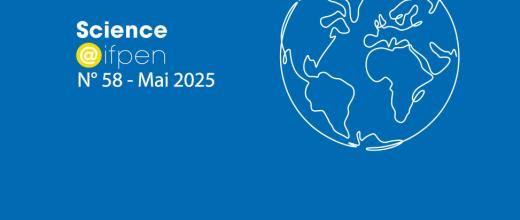
News in brief
Pilot unit digitalization
[ DIGITALIZATION AND IA - 1/2 ] The digitalization of activities is, in many respects, a major step forward that IFPEN is committed to rolling out for the benefit of its R&I. It consists in integrating innovative digital technologies to improve the efficiency, precision and productivity of our activities. It also involves integrating promising applications in generative artificial intelligence (AI).

News in brief
Hyperspectral camera characterization of plastic recycling flows
[ Process control and online analysis - 2/2 ] Plastics recycling is both a major environmental challenge and an emerging industrial sector for which IFPEN mobilizes its expertise and know-how in the field of hydrocarbon refining. From the point of view of recyclability, a significant feature of these new material flows is their high level of variability, both in terms of their composition (types of polymers, additives, mixed textiles, etc.) and their physical nature (multilayer plastics, reverse side/right side fabrics, etc.), and indeed sorting errors. It is therefore essential to develop continuous analyses in order to determine the quality of the flow to to be processed, based on the relevant properties of the materials contained.

News in brief
Knowledge transfer to new energies
[ DIGITALIZATION AND IA - 2/2 ] One of IFPEN's main areas of research concerns processes and catalysts for the production of bio-based fuels. This is reflected in a large number of experimental projects, the results of which generate knowledge that is then harnessed to develop models. However, this modeling requires the acquisition of large sets of experimental data, which are costly in terms of both time and resources.

Individual page
Azise-Oumar DIALLO
Research Engineer - Control, Signal, and Systems Department
PhD in Computer Science and Applications
PhD in Computer Science and Applications
PhD in computer science and multi-agent simulation from IMT Nord Europe, I strengthened my expertise in transportation system modeling and data science applied to mobility through a postdoctoral
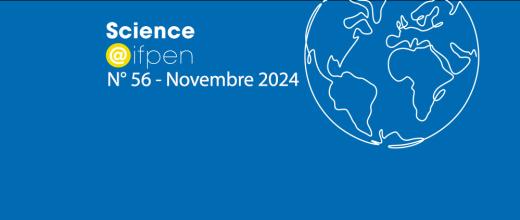
News in brief
Impact of hydroclimatic and anthropogenic parameters on past and future Rhône delta dynamic
Coastal systems such as deltas are vulnerable to sea-level rise and erosion. The stability of deltas depends on the sedimentary input produced in the watershed, which is strongly impacted by climatic and anthropogenic factors, whose variations and increasing pressure lead to problems of resource management (aquifers) and land-use planning (bank instability, flood management, etc.). In order to predict the impact of different environmental change scenarios and thus enable the implementation of appropriate local policies, it is essential to have modeling tools capable of integrating the various hydroclimatic and anthropogenic parameters and their temporal evolution...

News in brief
Drawing on lessons from the “fossil world” for the benefit of greener processes.
IFPEN is a global leader in the development of fossil feedstocks hydrotreatinga for clean fuel production. Processes from the same family now apply to a broader diversity of feedstocks: plastic and tire pyrolysis oil, in the context of chemical recycling, vegetable oils for biofuel production, etc. For these processes themselves to be eco-efficientb, beyond the targeted environmental benefit, their operating conditions need to be optimized by the use of kinetic or hybrid modelsc, as a function of the feedstocks employed and the specifications sought for the target products...

News in brief
SC7 - Sensitivity analysis of pollutant concentration maps to weather conditions and traffic parameters
Urban road traffic is a significant source of pollutant emissions that impacts air quality. Being able to predict the dispersion of these emissions is of major importance for evaluating real exposure and planning traffic flows. To this end, a PhD research project proposed a modeling chain making it possible to simulate highly turbulent flows on a local urban scale and obtain two-dimensional spatial maps of pollutant concentration...



